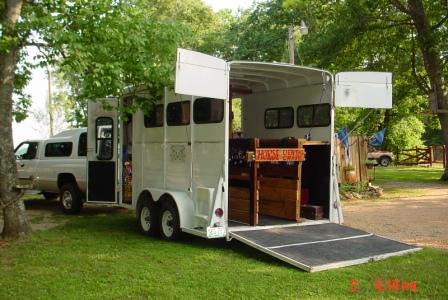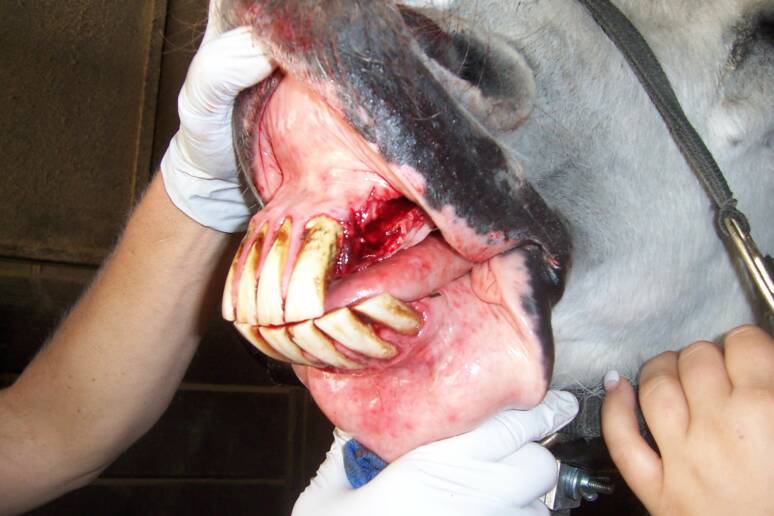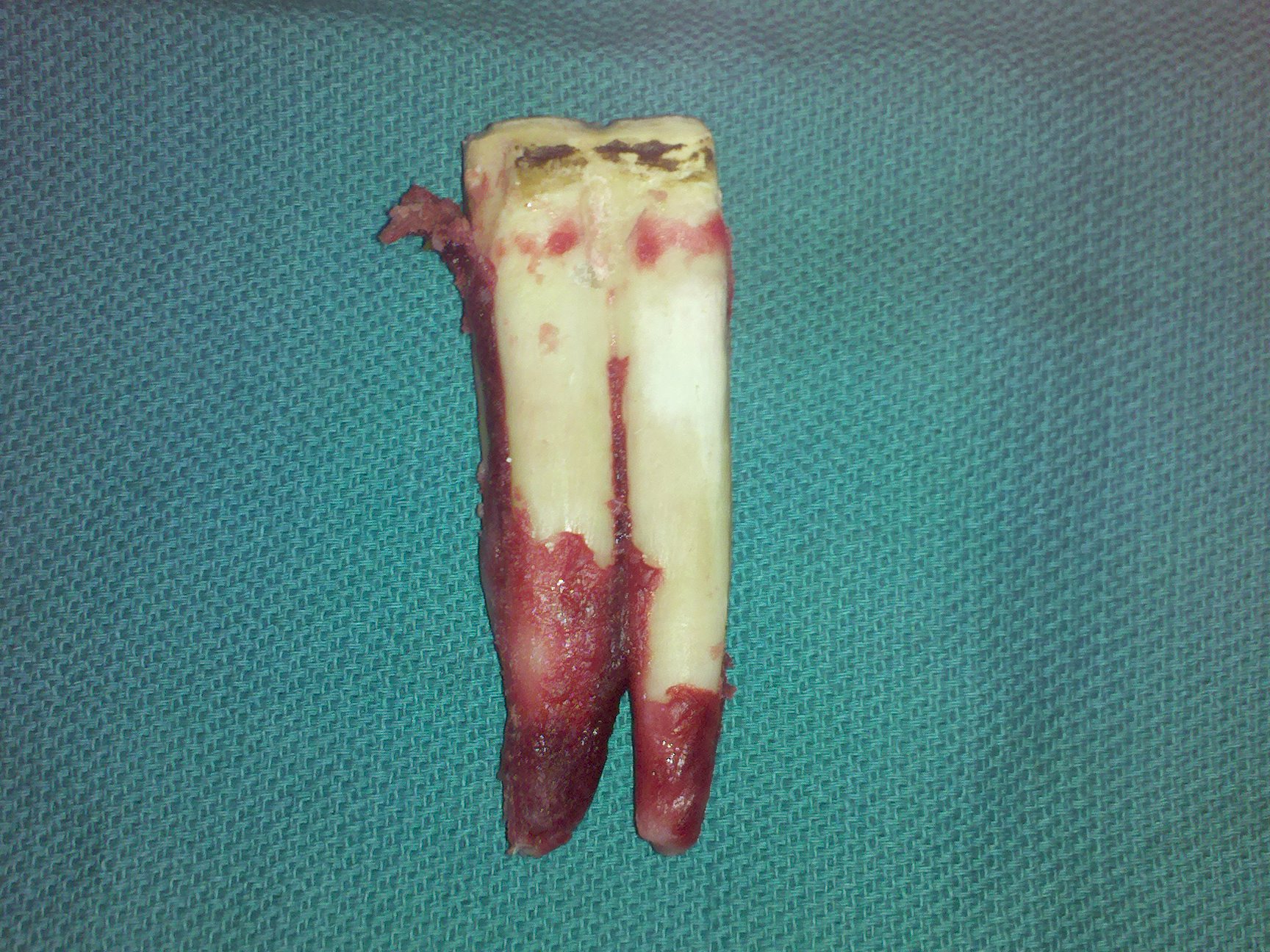


Extractions
Horses just like humans can have fractured teeth or infected teeth that require extractions. The best prevention against a tooth needing an extraction is regular proper dentistry. Sometimes however, injuries, age or unusual disease processes make it necessary to extract a tooth. In the past the only option for extractions were to anesthetize your horse with general anesthesia and undergo a surgical procedure where a hole is made in the sinuses and the tooth punched out. Complications from these procedures include: Posible reactions to anesthetic agents, injury from recovery when standing, and complications from the surgical procedures ( chronic sinusitis, oro-nasal fistula, repeat surgery). When it is possible, intra-oral extractions provide a safer method for extractions with shorter healing time and less incidence of complications.
When we perform an intra-oral extraction the horse is originally radiographed to evaluate the affected tooth. The horse will be put on antibiotics a few days before the procedure. The horse enters our mobile clinic, sedated and given a nerve block to numb the tooth, just like you would receive at your dentist office. After the nerve block has had time to work we use special extractors of different shapes depending on the size and location of your horses tooth. With a lot of patience we slowly and carefully "wiggle" the tooth to loosen the Periodontal Ligament. This ligament is what attaches the tooth to the bone. Once this ligament is released the tooth can be elevated out of the socket. If this is a younger horse the socket will most likely be deep and so we fill it with a soft rubbery material to keep food out while the tissues are healing. Most horses are ready to go back to work in a few days. They feel much better after the painful tooth has been removed. After a molar has been extracted the horse may need more frequent dentals (8-10 months) to reduce the opposing tooth that will want to erupt into this now empty space.


This horse had an infected incisor that had to be extracted
"I have noticed at least a 90% reduction of horses developing wave mouths when proper, regular dentistry was started by age 6, therefore drastically decreasing the occurence of periodontal disease and loss of molars"

The molar of an 8 year old horse that was infected at the root.
Equitage Horse Dentistry
760-634-2144